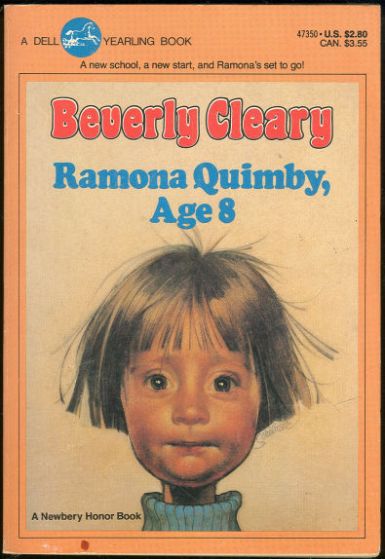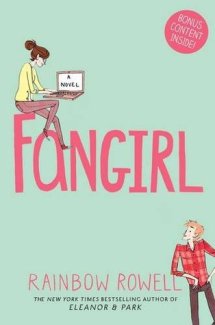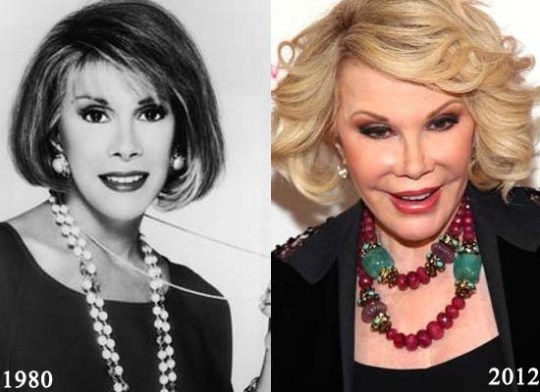I’m an historian by trade. In particular, my work focuses on “decolonizing” Canadian history– challenging Western European thought systems by focusing on the histories of marginalized Indigenous groups, as well as working to convey distinctly Indigenous understandings in my work. I also happen to be Mi’kmaq. I am a First Nations woman, and though I’ve been trained to check my biases, it is my identity that drives my passion in the field.
I’m about three months away from finishing my undergraduate degree, and I’m about to move on to a Master’s where I will use my thesis to continue working to decolonize historical understanding of Aboriginal-White relations in the past. If you haven’t figured it out yet, I’m all about challenging Western discourse. I’m also a huge advocate for the reconciliation movement between Indigenous and non-Indigenous people in Canada. Part of this movement– ahh, yes, we see the connection now– is to acknowledge not only indigenous worldview, but to understand and admit that Canadian treatment of First Nations, Métis and Inuit people has been, and still is deplorable, that assimilation policies and Indian Residential Schools destroyed entire cultures and left physical and mental scars on generations and generations of human beings, all for the sake of the progress of a colonial “civilization.” In other words, reconciliation, among other things, is about working to understand alternative narratives, acknowledging them, and working to counteract the repercussions of a past (and present) that frankly puts Canada in a very bad light indeed.
Of course, that’s the simple version, but I focus on Canadian reputation today because I’ve started to notice a trend in attempts at reconciliation in my own community lately. Take Stephen Harper’s 2008 apology to Residential Schools survivors, for instance. Many argue that the bureaucratic, matter-of-fact speech delivered by the then Prime Minister was a way for the government to respectably close the door on a past that they needed to forget in order to “move on.”
“Moving on” in the Canadian context can be read as “shutting up the Natives so that they’ll stop whining and making us look bad.” Harper spoke about the schools as an isolated part of history, one that began and ended in the past tense, separated from twenty first century Canadians and therefore as something that should be packed away and forgotten about. Because it was over. Right?
Based on the poverty, suicide, mental illness, poor health and unfit education levels among Canadian Aboriginal populations here in 2016, I’d give that a definite no. The legacy of those schools is perhaps just as horrific as the schools themselves, but because these institutions–and the overall assimilation policy under which they operated–are painted as things that “happened back then but are done now,” it’s easy to just forget about it and “move on.” The barrier between us and reconciliation grows ever higher.
Forgetting. If there’s ever a weapon that a victor of war wants to use, it’s that. Forgetting, though, isn’t just about not remembering that something happened. Forgetting can also be minimizing things that have occurred; if something isn’t seen as relevant, it’s ignored. Once something is ignored, the process of forgetting is already in full swing. It’s what happened with the 2008 apology (Google it, if you’re interested). It is coincidentally also what has been happening in my First Nations Sociology course over the past few weeks, and why I’m writing this now.
See, when something dark comes to light, those who have spent most of their time in the light tend to shrink away from it. It’s cold, it’s heavy, it’s uncomfortable, therefore, it should be avoided at all costs. Sometimes, though, there are people stuck living in the dark, and it’s just as cold and heavy and painful as the people in the light would imagine– and you know what, that’s totally fine, because when someone’s in the dark, no one on the other side of it can see them; it’s good for business. But what happens when someone who has spent a lot of time in the dark draws attention to themselves? They’re probably pitiful to see; pale, fragile. Everyone’s fine shaking their heads in sympathy and saying “tut, tut, that poor soul,” that is, until they realize that they’re the ones who forced them into the dark in the first place. Or, in the case of Canada, their ancestors did, and maybe by ignoring the fact that the dark still exists, and being quite content with leaving it the way that it is– “because I didn’t put it there, now did I?”– these present day folk might be just as instrumental in keeping people there as their grandparents were.
But no one wants to admit that, do they? Lately, I find that when non-indigenous people who aren’t familiar with decolonized history come face to face with the absolute horrors of Canadian assimilation policy, they refuse to take in any information, because it’s uncomfortable. I’ll be the first person to admit that it’s extremely unsettling– now imagine that just two generations before you, your grandfather was taken away from his family and given to another one more “fit” to take care of him and even though he grew up and “moved on” with his life, the scars that he bore–invisible to most– were screaming red for later generations to see. And funny enough, those scars imprinted themselves on you, too. Yep. Super uncomfortable. Except, in this situation, you wouldn’t have the ability to put your hands over your ears, to say “enough!”
Part of the problem of reconciliation is that we’re still fighting against a colonial discourse that many are still unwilling to admit exists. No one is willing to have their worldview challenged by a reality that rips the carpet out from under their cozy understanding of things. And this, unfortunately, has ramifications for people right now. Google “Canadian First Nations issues;” you’ll have a bunch of facts and figures delivered right to your lap if you want a picture of the sort of things we’re dealing with. But on top of the depressing stuff– and of course, on top of the amazing success stories, Indigenous victories and powerful Aboriginal leaders and game-changers that have risen over the past few decades–we’re also fighting against a society that has become an expert at forgetting. They got so good, in fact, that people now are completely unwilling to learn anything but the stuff they’re told to remember by their society. And the results, as I recognized today, are pretty dangerous.
I enrolled in the Sociology course as an elective, something to tack on to the end of my transcript to fulfill extra credit requirements before I graduated. Of course, because of what I’ve dedicated my life to, the material seemed engaging. This was a course all about looking at First Nations issues with a goal of “decolonizing” students’ understanding of these issues. Perfect. Right up my alley.
Our instructor is white. That’s not a red flag. In fact, seeing non-Indigenous citizens, scholars, politicians, and more get involved in the reconciliation movement is uplifting. The instructor was explicit in stating that they were indeed descendants of settlers, that they too were working to decolonize the way they saw things. Even better, I thought to myself.
Except, I began to notice the very discourses we work to shatter creeping into the course material, not just with the instructor themselves, but also with the way the students were engaging with that material. So, I started to ask questions. I started to answer questions that the instructor posed with an indigenous viewpoint that sometimes didn’t make sense to them or to the other students. These comments tend to spark debate–which is a good thing– except the debates reek of hurt feelings. It’s like students are getting insulted by someone raising–here’s the word again– uncomfortable questions about their own discourses. The indigenous side of reconciliation is not meant to attack religion, or culture, or any spiritual belief system. I mean, come on, we’ve been dealing with that for centuries, why would we throw it onto others? Instead of contemplating things, they close their ears. Once it gets uncomfortable, they stop listening. And that’s when we run into trouble.
Last week, the class discussed the infamous “Indian Problem.” That was the name that the Canadian government gave to the issue they thought assimilation would solve. The Indian Problem–for Canada did indeed see it as a problem–led to a bureaucratic attempt at genocide–which is the intent to destroy a group in whole or in part, according to the UN Genocide Convention, and, as history shows, is exactly what happened here. The concept is sinister, and the name that it was given, tossed around like a municipal acronym for a bike trail action plan, is something you’d picture archaic dictators like Adolf Hitler using. That can’t happen in Canada, that wouldn’t happen in Canada, we’re civilized; we’re the most peaceful country in the world!
And yet, it did. The Indian Problem was something understood by Canadians everywhere, ones who were willing to do anything, regardless of how awful we consider it now, to solve it. To call it by any other name would be to remove the horrific power that it had, to destroy historical significance and to undermine any attempt to fix the issues that it caused. The Indian Problem existed. Say it with me now, The Indian Problem existed. And the Canadian government used a colonial, Social Darwinist view to justify dealing with the “problem.” It birthed the residential schools, the banning of the potlatch, forced enfranchisement, the separation of families, the death of hundreds of thousands of innocents…it was real.
Pretty uncomfortable, isn’t it? Some students in my class, along with the instructor certainly thought so. As a result, they decided that they didn’t have to say “The Indian Problem” anymore and instead began to call it “The IP.”
I’m going to be honest, as a Mi’kmaq student and one who has dedicated her entire career to breaking down colonial discourse, the concept is frustrating. In a class meant to challenge this worldview, the students and the teacher have suddenly become okay not dealing with the uncomfortable stuff. In the span of an hour and a half, in a class meant to foster reconciliation by helping students understand real issues, the point of the lessons it was supposed to give was lost. The Indian Problem, the foundation of assimilation policies that Canadians— in our own lifetimes, no less–imposed on a group of human beings, has become taboo in our class. Because it made a few squirm in their seats.
Reconciliation fails when we neglect to acknowledge the past for exactly what it was. Reducing real, negative historical concepts to childish “F-word, S-word” swear- acronyms because no one wants to be uncomfortable, takes away what we as First Nations people– and the class itself in principle– are trying to do.
Another example: today, the instructor discussed the physical, mental and emotional abuse Residential School survivors faced during their incarceration. He neglected to mention rampant sexual abuse as well. I wasn’t the only Native kid in the room to pick up on that one, either.(Yes, there are multiple indigenous students sitting in this classroom) We were disappointed, frustrated, even a little bit angry. The class has become a “safe place” to talk about Aboriginal issues– i.e. one that provides a censored, bedtime story version of a history already muffled by Canadian victory narratives. And based on what has been happening, I don’t see it helping the course objective of decolonizing western thought at all.
There can be no progress made when we’re stuck in the safe-zone, coming to the boundary between what’s acceptable in contemporary Canadian life and the hard truth and refusing to step foot over the line. By letting discomfort push you into using silly acronyms and avoiding the tough questions, you not only defeat the purpose of challenging what you set out to challenge in the first place, but you make a farce out of something that millions are working to give legitimacy to.
The class was asked today if Canada was making any progress in its relationships with Aboriginal people. The technical answer is yes, the instructor was quick to add. But remember: this “progress” involves learning about Aboriginal trials and triumphs and actively working to understand our past, our present and our collective understanding of each of these things as Indigenous people.
If there’s anything that this class has taught me, it’s that it has been slow progress indeed.












